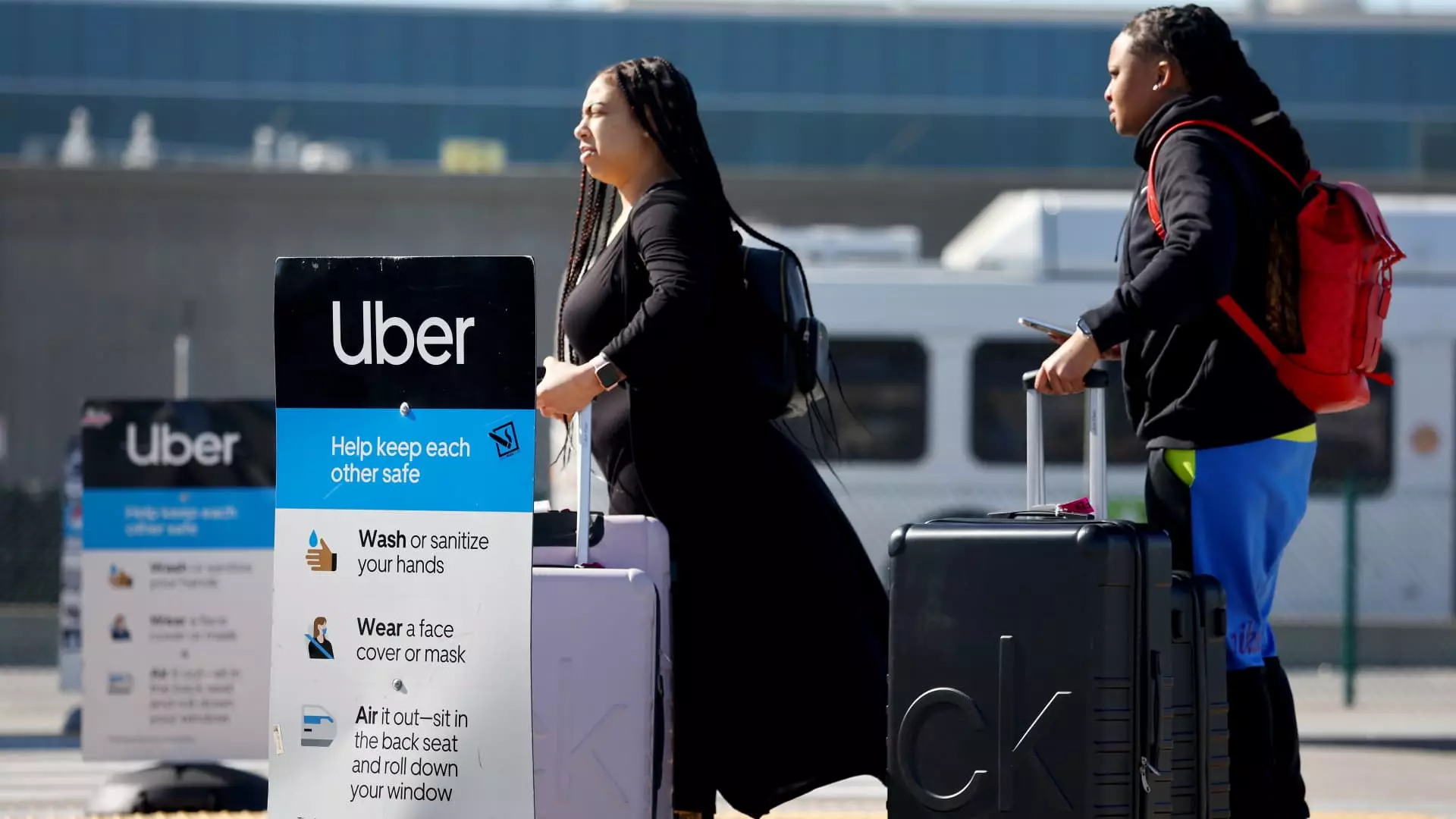In a bold move to enhance customer loyalty and convenience, Delta Air Lines has announced a strategic partnership with Uber, ushering in a new era for its SkyMiles loyalty program. This partnership comes as a significant shift from Delta’s previous collaboration with Lyft, which lasted eight years. With this new relationship set to launch in the coming spring, the airline aims to provide its members with a streamlined travel experience that integrates ride-hailing services seamlessly with air travel.
The shift to Uber aligns with a growing trend among airlines to diversify their partnerships, thereby creating more value for their faithful customers. Delta SkyMiles members can now earn a range of reward miles for using Uber services, with specific earning metrics established based on the type of ride. For instance, members will earn one mile per dollar spent on UberX for airport rides, and the earning rate increases up to three miles per dollar on premium services like Uber Reserve. Such initiatives reflect a notable effort to make airport travel more efficient and enjoyable, particularly as the travel industry continues to rebound post-pandemic.
Delta’s departure from Lyft raises questions about the competitive dynamics in the ride-hailing market. Lyft has apparently been successful in fostering user loyalty, evidenced by its reported 24.4 million active riders and record ride bookings. However, Delta’s realignment with Uber—who boasts a whopping 161 million monthly active users—indicates the airline is prioritizing scale and reach within the ride-hailing sector. The overwhelming number of active Uber users provides Delta with an opportunity to tap into a larger customer base, thus enhancing their loyalty program’s appeal.
Additionally, Uber’s substantial influence in both ride-hailing and food delivery may provide Delta with the cross-promotional opportunities needed to attract new customers. The incorporation of Uber Eats into the SkyMiles program allows members to earn miles on delivery orders over $40 from various restaurants and grocery stores, showcasing an innovative approach to linking travel with everyday conveniences. This type of synergy is detrimental to the customer experience, emphasizing convenience and value in a single interface.
For current SkyMiles members, this shift may signal the end of an era but also presents newfound opportunities for earning loyalty points. Delta has assured its customers that those who have linked their Lyft accounts will still be able to accrue miles until April 7, providing a transitional window for users accustomed to Lyft services. This gesture demonstrates Delta’s commitment to ensuring a smooth transition for current users, prioritizing customer satisfaction even amid significant changes.
The integration of various lifestyle offerings, not only from Uber but also from other partners such as Starbucks and Hertz, further enhances the overall value proposition of the SkyMiles program. By collaborating with key players in different sectors, Delta is not just promoting its airline services; it is embedding itself into the daily lives of its customers. This comprehensive approach allows travelers to connect the dots between different aspects of their travel experience, offering rewards that reflect a broader lifestyle engagement.
As airlines like Delta continue to evolve in an increasingly competitive landscape, leveraging strategic partnerships like that with Uber becomes essential for maintaining relevance and attracting new customers. With forecasts predicting robust revenues from its collaboration with American Express, Delta’s focus on enhancing its loyalty program tails right into a larger goal: improving analytics and insights on customer preferences.
The announcement of an AI-powered assistant in Delta’s app, alongside enhancements to in-flight entertainment, indicates a forward-thinking approach aimed at elevating the customer experience even further. Such technology-driven innovations are necessary to meet the expectations of today’s travelers, who demand efficiency, personalization, and value in their journeys.
Delta’s new partnership with Uber represents not just a shift in ride-hailing services, but a broader strategy to enhance customer loyalty and experience in a highly competitive travel market. As travel rebounds, initiatives like this indicate a commitment to evolving travel trends and customer preferences, ensuring that Delta remains at the forefront of industry innovation.

